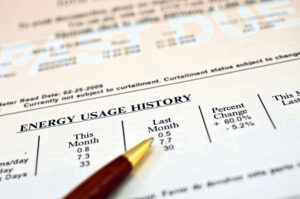Benchmarking
It’s one of the most common phrases you hear in energy efficiency circles: “What gets measured gets managed”. And one of the most popular and effective measurement tools is benchmarking, designed to measure the energy performance of a building over time — compared to itself, a norm or similar buildings.
Benchmarking has become a hot topic in Virginia lately and for good reason.
 According to an Energy Star report on data savings trends, benchmarked buildings achieve an annual energy savings of approximately 2.4% per year. Buildings with lower-than-average energy savings have the most to gain through benchmarking. According to the Energy Star report, buildings with the lowest ratings saved twice as much as those starting above average.
According to an Energy Star report on data savings trends, benchmarked buildings achieve an annual energy savings of approximately 2.4% per year. Buildings with lower-than-average energy savings have the most to gain through benchmarking. According to the Energy Star report, buildings with the lowest ratings saved twice as much as those starting above average.
That’s right. Simply measuring and creating awareness of a building’s energy use can lead to significant reductions in energy use. That’s an immediate win.
However, in Virginia, energy use for state facilities is not being measured. The Department of Mines, Minerals and Energy (DMME) is attempting to change that by integrating facility information from the Department of General Services and Dominion for the 200 highest energy-consuming state facilities in Dominion’s service territory. Once they do the initial tedious work of data clean-up and integration, DMME will develop reports for these facilities managers alerting them to low- to no-cost measures they can take, or projects and programs they can participate in, such as Energy Performance Contracting (see previous recommendation), to reduce energy use at their facilities. They hope to have this completed by mid-2018. By mid-2019, they plan to include water and natural gas usage and track data at all state facilities in Virginia.
Recommendations
The VAEEC recommends Virginia provide and support opportunities for benchmarking of state, local and commercial buildings.
We recommend continuing the funding for this project to help the Commonwealth identify ways to save money on energy, gas, and water usage at all state facilities. Having this information available will help decision-makers make more informed decisions on state policies and goals for the Commonwealth.
We also recommend granting localities the authority to enact mandatory benchmarking programs for commercial buildings if they wish to do so. DMME should continue to advance this concept through a consensus-building effort with stakeholders.
Benchmarking building energy data is a critical first step for a building owner or facilities manager to improve energy performance over time. Tracking this data not only results in operational changes, which spur immediate no-cost/ low-cost reductions in energy consumption, but can also be a conduit to increased government efficiency, economic growth, job creation, and comfortable work environments.
Benchmarking 101
Benchmarking is the practice of comparing the measured energy performance of a building over time to itself, buildings of similar size and use, or modeled simulations of a reference building with the goal to inform, motivate performance improvement, and assess opportunities for improvement. More information can be found on the Department of Energy’s Building Energy Use Benchmarking webpage.

